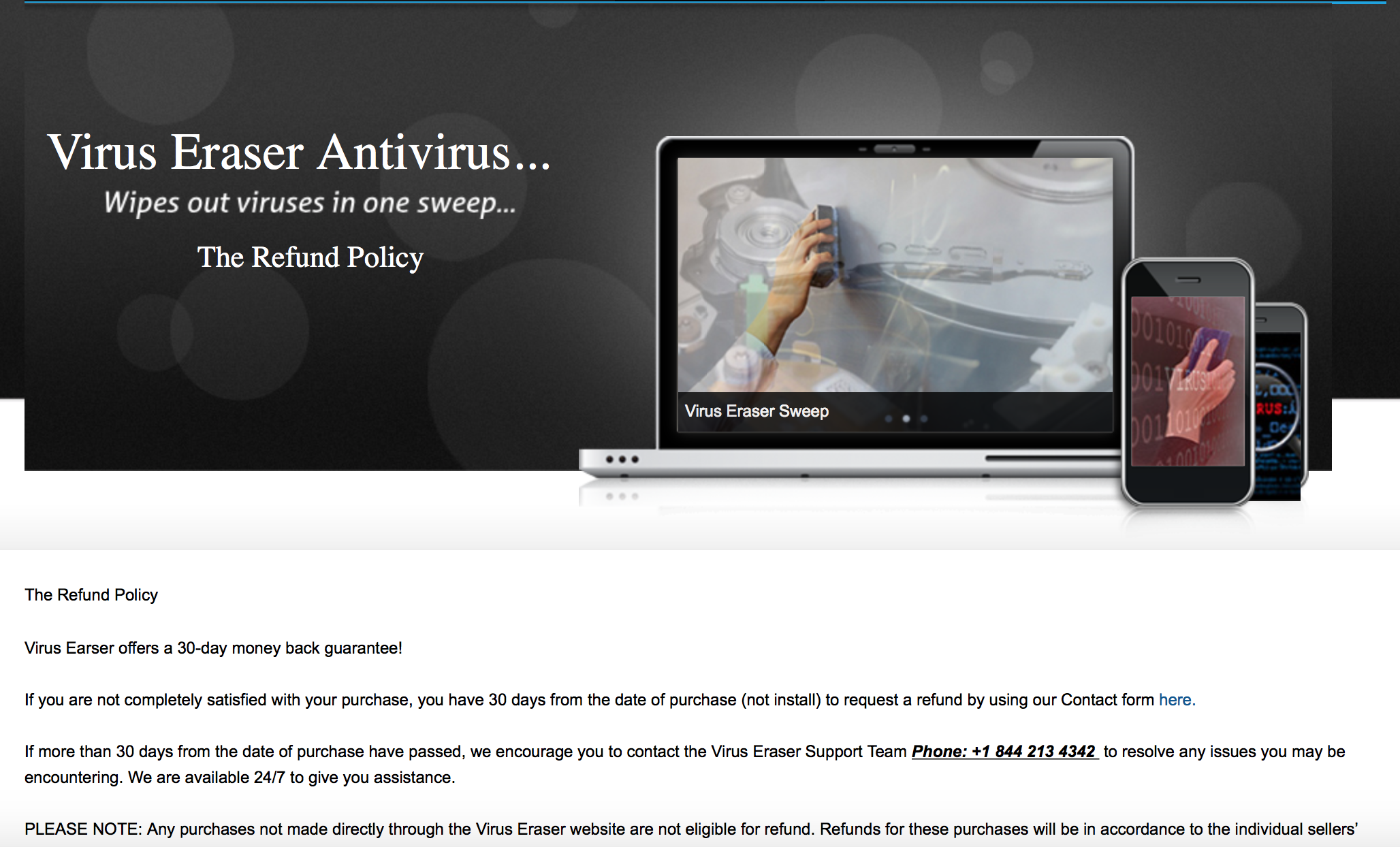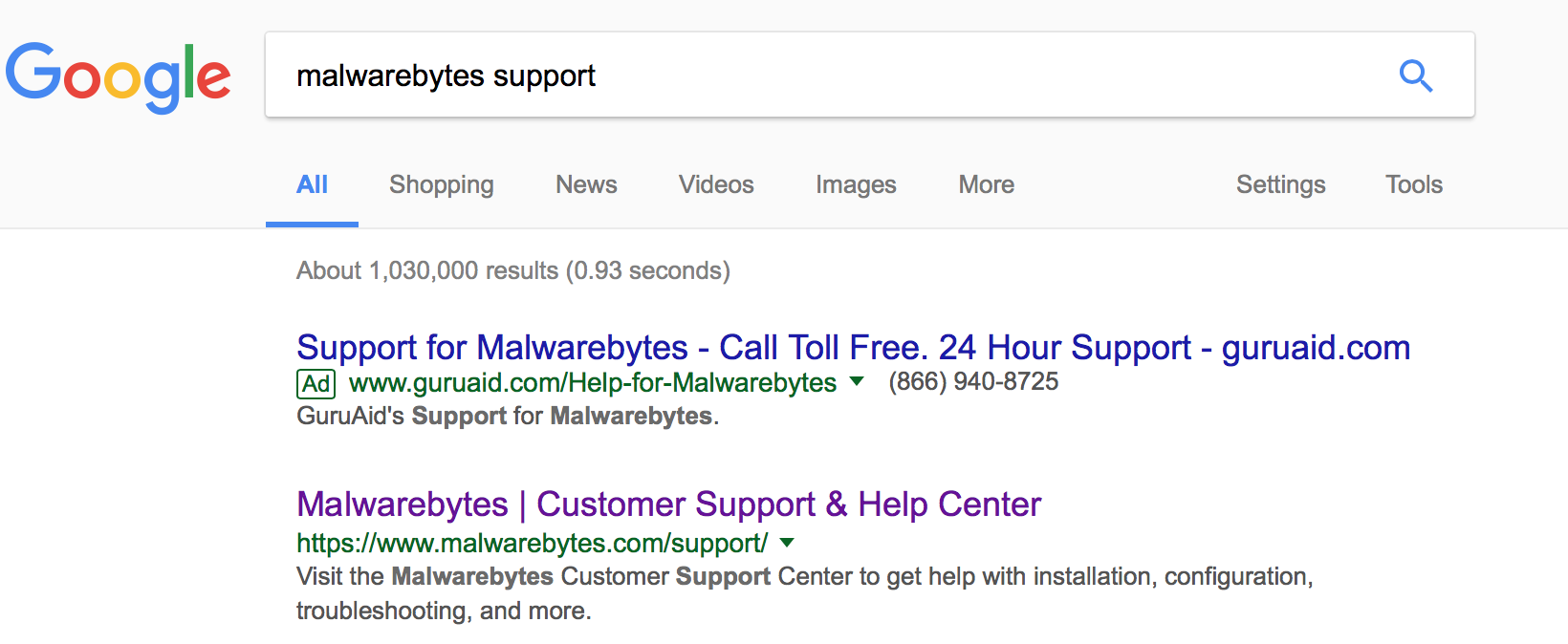A lot of companies don’t make clear who their tech support is, what their relationship to that group is, and what the difference is between ‘licensed’, ‘authorized’, ‘partner’, ‘reseller’, and ‘actually an employee, we swear.’ You might call up a company for help and get one of their employees in East Haven, CT. Call at another time and you might get a contracted boiler room in India that provides support for 10 other companies. Given the wide variety in how legitimate companies handle their support, can you tell the difference between tech support and a tech support scam? Here are a few points to differentiate us:
1. The company gives you any name at all other than Malwarebytes.
We do not outsource our support. There are no third parties “authorized” to provide support. Nobody is “licensed” to use our name, logo, or any other intellectual property. One more time for emphasis:
Malwarebytes does not outsource its technical support.
2. The company can’t or won’t take your credit card the first time you ask.
Reputable organizations don’t do this. Period. Malwarebytes has a credit card processor that takes payments for all transactions. Credit card processors do things like vet clients for risk, fraud, and abuse. So if you, as a company, have trouble doing business with one, it suggests strongly that your business model fits into one of those three categories. Credit cards also have reasonably robust consumer fraud protection, so if you’re being steered away from using one, that is also a red flag that the company is about to do something they probably shouldn’t. See this blog post for more.
3. The company has prominent information on refunds in their FAQ.
If how to get your money back is frequently asked enough to warrant its own page on the company’s website, there might be some issues with the company.

4. The company refer to themselves as Boomerang, Geek Software Experts, Zole Global, Antivirus Masters, or Guruaid.
Malwarebytes does not have a relationship with these companies and they have extensive, public histories of unhappy customers. If you have had any negative contact with these companies when you were trying to get a hold of us, please post in the comments section below.
5. The company makes outbound support calls.
Malwarebytes does not do this. Tech support companies that make outbound unsolicited calls tend to do so because they bought your personal information from a data broker who classified you as a vulnerable target. Furthermore, how would they know you have a problem with your computer? How would they even know you own a computer?
6. You clicked on an ad by mistake.

Looking at that first result, did you catch that minuscule box that says “Ad” in the same color and font as the URL? No? Then you might end up accidentally talking to someone who isn’t us, but spent enormous amounts of dollars for an ad slot that looks kind of like the first organic search result. Remember:
Malwarebytes does not outsource its technical support.
Conclusion
If you didn’t come by support via malwarebytes.com, you do not have us. So if you expected us and for whatever reason ended up with somebody else, what do you do? First of all, if you’ve allowed a company that you have doubts about to access your computer, end the session, then hang up the phone. Then, check out our resource page here to find out what to do next and how to protect yourself going forward. Lastly, if you’ve had any unpleasant experiences with the companies referenced above, let us know in the comments as well.
William Tsing










